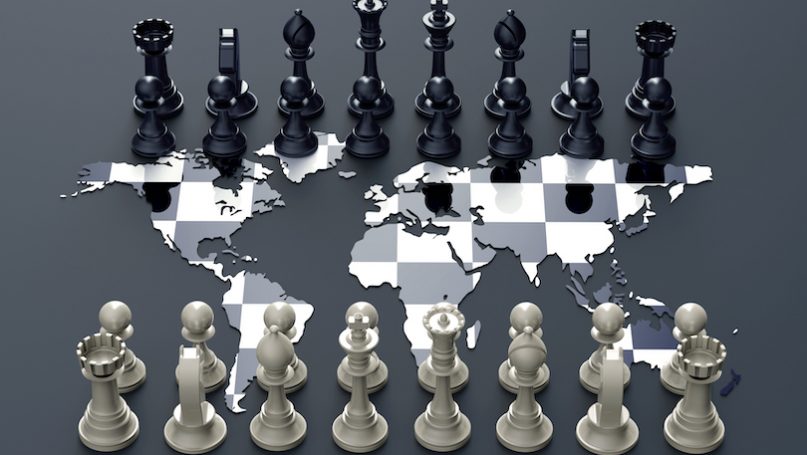
This feature is part of the online resources to accompany the textbook Foundations of International Relations.
Realism gained momentum during the Second World War when it appeared to offer a convincing account for how and why the worst conflict in known history commenced after a period of supposed peace and optimism between 1918 and 1938. Although it originated in named form in the twentieth century, many realists have traced its origins to earlier writings. Indeed, realists have looked as far back as to the ancient world to the writings of the Greek historian Thucydides (460–400 BCE) where they detected similar patterns of human behaviour as those evident in our modern world. As its name suggests, advocates of realism purport it reflects the ‘reality’ of the world and more effectively accounts for change in international politics.
Thomas Hobbes is another historical figure often mentioned in discussions of realism due to his description of the brutality of life during the English Civil War of 1642–51. Hobbes described human beings as living in an orderless ‘state of nature’ that he perceived as a war of all against all. To remedy this, he proposed that a ‘social contract’ was required between a ruler and the people of a state to maintain relative order. Today, we take such ideas for granted as it is usually clear who rules our states. Each leader, or ‘sovereign’ (a monarch or a parliament, for example) sets the rules and establishes a system of punishments for those who break them. We accept this in our respective states so that our lives can function with a sense of security and order. It may not be ideal, but it is better than a state of nature where chaos and anarchy (the lack of a higher authority) prevail. As no such contract exists internationally and there is no sovereign in charge of the world, disorder and fear rules international relations. That is why war seems more common than peace to realists, indeed they see war as inevitable.
When realists examine history they see a world that may change in shape, but is always characterised by a system of what they call ‘international anarchy’ as the global system lacks the kind of hierarchical order that we experience within our domestic societies. The best way to understand realism and how it views the global system is to break it into elements. Dunne and Schmidt (2020) have helpfully described these as the three Ss of realism: statism, survival and self-help.
Text adapted from McGlinchey, Stephen (2022) Foundations of International Relations. London: Bloomsbury.
For much more on realism and other theories, you can download the free textbook, International Relations Theory.
Below is a collection of freely accessible multimedia and textual resources that help unpack, and explain the importance of realism to International Relations.
Getting Started with Realism
Engaging with realists
Introducing Realism in International Relations Theory – book chapter
World Politics 2010: Realism – podcast
Theory Talk with Kenneth Waltz – article
Theory Talk with Bob Jervis – article
Theory Talk with Stephen Walt – article
Theory Talk with John Mearsheimer – article
‘The Surrealism of Realism: Misunderstanding the War in Ukraine’ by Alexander J. Motyl – article
‘Obama the Realist’ by Paul R Pillar – article
Interview with Kenneth Waltz on Iran’s nuclear proliferation – article
‘The Thucydides Trap: Are the U.S. and China Headed for War?’ by Graham Allison – article
‘The Emotional Amoral Egoism of States’, by Nayef Al-Rodhan – article
Stephen Walt’s Guide to Realism – podcast
Discussing Waltz and his ‘structural’ realism – podcast (part two is here)